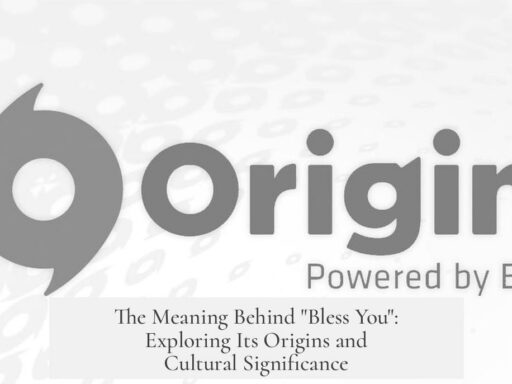Indira Gandhi retained Sikh bodyguards after ordering Operation Blue Star because she firmly valued secularism and refused to discriminate against Sikhs, despite clear warnings about security risks following the military attack on the Golden Temple.
Indira Gandhi’s decision to keep Sikh personnel on her security detail was deeply tied to her political principles. After Operation Blue Star in June 1984, which involved deploying the Indian Army to flush out militants from the Golden Temple, tensions between the Indian government and a section of the Sikh community escalated drastically. The military operation resulted in the death of hundreds of people and the desecration of one of Sikhism’s holiest sites, creating outrage among Sikhs worldwide.
The Indian Intelligence Bureau had recommended in July 1984 that Indira Gandhi remove Sikhs from her personal security team out of concern for her safety. However, Gandhi declined this advice, responding with the rhetorical question, “aren’t we secular?” This refusal demonstrated her strong commitment to India’s secular identity, a value upheld constitutionally. She and her father, Jawaharlal Nehru, believed India should not allow religion to divide the government or affect public institutions, even amid communal tensions.
Her adherence to secular principles was visible in her political actions. When she declared the Emergency in the 1970s, she modified the Constitution’s preamble to include the phrase “Sovereign Socialist Secular Democratic Republic,” emphasizing secularism as a foundational aspect of the Indian state. Removing Sikhs from her security detail would have contradicted this stance. Gandhi apparently did not want to bend this principle, even under severe risk to her personal security.
Gandhi’s principle-based decision came despite her personal awareness of danger. According to Pupul Jayakar, a close friend and biographer, Indira Gandhi often contemplated her mortality in the months after Operation Blue Star. She reportedly expressed an acceptance of death as inevitable once the situation escalated. She also feared for her family’s safety, especially her grandchildren, recognizing the possibility that reprisals might extend to them.
The political climate further heightened the risks. Following Operation Blue Star, Sikh militants led by figures like Jarnail Singh Bhindranwale intensified violent activities in Punjab. The insurgency included attacks targeting Hindus. The Khalistan movement, which aimed for an independent Sikh homeland, grew with support from diaspora Sikhs abroad, complicating the situation. The assassination of Indira Gandhi by her own Sikh bodyguards was a direct response to these tensions.
Still, Gandhi’s insistence on keeping Sikhs close highlights the complexity of her leadership. She aimed to project and embody secular nationalism, refusing to treat the Sikh community as monolithic or inherently hostile despite the growing violence. Her stance demonstrated a principled focus on unity and equal treatment under inclusion policies, even when official intelligence warned of possible betrayals.
| Aspect | Details |
|---|---|
| Operation Blue Star | Military assault on Golden Temple in June 1984, killing hundreds and outraging Sikhs |
| Security Recommendation | Intelligence Bureau advised no Sikh bodyguards post-Blue Star due to security risks |
| Indira Gandhi’s Response | Refused to remove Sikh bodyguards; cited secularism and equal treatment |
| Secularism Principle | Constitutional value emphasized during Gandhi’s leadership and political ideology |
| Personal Awareness | Gandhi feared for her life and family, yet prioritized principles over precaution |
| Outcome | Assassinated by her Sikh bodyguards on October 31, 1984 |
The decision to keep Sikh bodyguards illustrates Indira Gandhi’s complex leadership balancing personal risk, political principle, and national unity during a volatile period. She chose not to alienate an entire religious community on the basis of extremist violence within that group. This approach was consistent with her lifelong emphasis on secular democracy, despite the tragic consequences.
- Indira Gandhi prioritized secularism over personal security risks when keeping Sikh bodyguards.
- Operation Blue Star severely intensified Sikh grievances, leading to her eventual assassination.
- The Intelligence Bureau had warned against Sikh guards, but she rejected the advice on principle.
- Her leadership sought to maintain religious neutrality amid rising communal conflict.
- The assassination by Sikh bodyguards was a direct outcome of the turbulent political climate.
Why Did Indira Gandhi Keep Sikh Bodyguards After Operation Blue Star?
Indira Gandhi was assassinated by her Sikh bodyguards only five months after she ordered Operation Blue Star, a military action against militants holed up inside the Golden Temple, one of Sikhism’s holiest sites. Despite the obvious risks, she chose to retain Sikh personnel on her security detail, firmly grounded in her commitment to India’s secular ideals.
That’s a curious and tragic paradox. Let’s break down the story behind this complex decision and explore why Indira Gandhi’s faith in secularism outweighed the warnings from intelligence agencies.
Operation Blue Star: The Catalyst for Conflict
In June 1984, Indira Gandhi authorized India’s army to storm the Golden Temple to flush out heavily armed militants led by Jarnail Singh Bhindranwale. The operation involved tanks and intense fighting. Official reports claimed hundreds of militants died alongside several soldiers, but many Sikhs saw this as a desecration of their sacred temple.
The wounds ran deep. The attack alienated Sikh communities across India and the diaspora—millions were outraged, which ignited calls for Khalistan, a separate Sikh state. The incident created a volatile atmosphere where trust was fraying fast.
The Intelligence Bureau’s Warning
One might assume that after such a divisive operation targeting Sikhs, the prime minister would take every precaution to safeguard herself—including restructuring her security. Indeed, in July 1984, the Director of the Intelligence Bureau advised that no Sikhs should serve as her personal bodyguards.
Yet, Indira Gandhi rebuffed this recommendation. She reportedly said, “Aren’t we secular?” This line wasn’t just rhetoric. It reflected a profound belief she and her father, Jawaharlal Nehru, held—that India must remain a unified, secular nation that does not discriminate based on religion.
Commitment to Secularism Over Security Concerns
Indira Gandhi’s decision wasn’t naive; it was deliberate. Even when ruling as an emergency-era dictator, she upheld secularism as a core constitutional value. She had altered the preamble of India’s Constitution to emphasize India as a “Sovereign Socialist Secular Democratic Republic.” Removing Sikh bodyguards would contradict this image.
She seemed to hold a paradoxical stance: pursuing a hardline operation that angered many Sikhs yet refusing to label Sikhs in general as enemies or threats. Such discrimination, to her, would betray the very identity of India as a secular state.
Living with the Risks: Awareness of Danger
Indira Gandhi was no stranger to political danger. Close confidant Pupul Jayakar wrote about how she often contemplated death following Operation Blue Star, saying, “Isn’t [death] inevitable?” Her dread wasn’t just abstract; she feared for her family’s safety, especially her young grandchildren.
Keeping Sikh bodyguards meant gambling with her life, yet this risk seemed acceptable compared to compromising on her principles. Could she remain true to herself—and to India’s spirit—if she succumbed to fear and excluding Sikhs became state policy?
The Sikh Insurgency: A Divided Community
At the time, Punjab was a cauldron of violence. Bhindranwale’s followers conducted attacks aimed at Hindus and anyone seen as opposing their separatist goal, Khalistan. Sikh militants abroad declared Khalistan simultaneously in countries including the U.S. and Canada.
Militants sought to drive Hindus out of Punjab, which would strengthen Sikh political control. The tensions were not just ethnic but deeply political and religious. The Golden Temple siege served as a rallying point feeding the insurgency.
Why Retain Sikh Bodyguards? Practicality and Symbolism
One might argue Indira Gandhi simply wanted her security detail to reflect India’s diversity. Or maybe she believed loyal Sikhs could rise above militants’ wrath. Either way, her refusal sent a powerful message: no entire community should be punished for the actions of insurgents.
Her stance also challenged the security establishment’s fear-based approach. The Indian Express highlighted this when it reported just after her assassination that she knew the risks but chose not to yield to communal profiling.
Lessons From This Tragic Choice
This breakdown sheds light on a painful truth: sometimes, political ideals clash squarely with personal safety. Indira Gandhi’s decision to keep Sikh bodyguards was more than protocol—it was a statement about India’s identity. It argued that security cannot come at the price of secularism and equality.
Her assassination by some of those very guards tragically revealed the tightrope India walked between secular ideals and rising communal tensions.
What Can We Learn From Indira Gandhi’s Dilemma?
- Secularism is a tough stand: Upholding it means resisting easy fixes like discrimination—even under threat.
- Trust is complicated: Political unrest fractures communities, but leaders often must bridge divisions by example.
- Security decisions have political weight: Those choices send signals beyond just personal safety.
Today, as societies worldwide grapple with diversity and security, her story offers a cautionary tale. Respecting pluralism while ensuring safety may not always align, but balancing them is essential to democracy’s health.
Final Thoughts
Indira Gandhi’s decision wasn’t just stubbornness or denial—it was a principled stance under tremendous pressure. Her asking “aren’t we secular?” reflected the dream of an India where religion didn’t dictate a person’s rights or trustworthiness.
Unfortunately, history unfolded harshly. The very bodyguards she trusted became agents of her demise, underscoring that commitment to ideals can come with a steep cost.
Still, her choice serves as a reminder: in leadership, principles matter, especially when they’re most tested. Would you take similar risks to uphold your deepest values if the stakes were so high?


